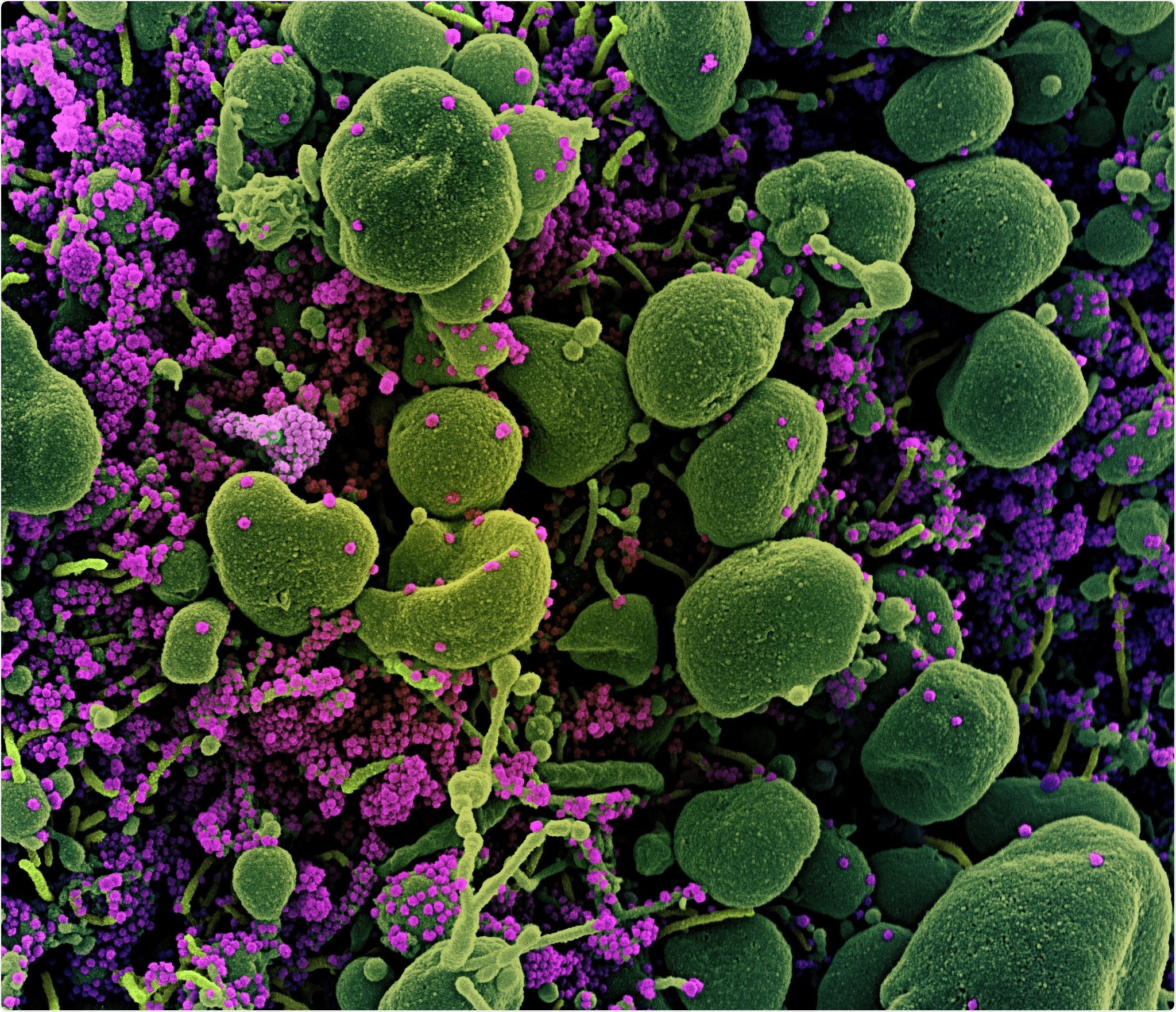An anti-inflammatory drug Ruxolitinib has shown promising results in the treatment of severe coronavirus disease COVID-19. The study titled, “Ruxolitinib in treatment of severe coronavirus disease 2019 (COVID-19): A multicenter, single-blind, randomized controlled trial,” was published as a pre-proof for the Journal of Allergy and Clinical Immunology.
What is Ruxolitinib?
The researchers explain, Ruxolitinib is a “Janus-associated kinase (JAK1/2) inhibitor,” which is used in the management of diseases such as polycythemia vera and myelofibrosis. It is also used in the management of “acute graft versus host disease” seen after bone marrow transplant (allogeneic hematopoietic stem cell transplantation) when the condition fails to respond to traditional steroid therapy. The drug has been approved for the treatment of “secondary hemophagocytic lymphohistiocytosis.” This agent suppresses allergic and immune responses in the host. The drug has been approved by regulatory authorities such as the U.S. Food and Drug Administration (FDA) and the European Medicines Agency. Common adverse effects of the drug include anemia.
What was this study about?
The novel coronavirus or severe acute respiratory syndrome coronavirus 2 (SARS-CoV-2) has brought the whole world to a standstill. The virus has infected millions of persons and killed hundreds of thousands across the world. In most fatal cases, there are symptoms of cytokine storm with an overwhelming effect on the immune system. The researchers hypothesized that Ruxolitinib could be effective in cases of COVID-19, where there are raised levels of cytokines. This was thus a “randomized, multicenter, placebo-controlled, single-blind phase II trial in patients hospitalized with severe COVID-19”.

Novel Coronavirus SARS-CoV-2 Colorized scanning electron micrograph of an apoptotic cell (green) heavily infected with SARS-COV-2 virus particles (purple), isolated from a patient sample. Image captured at the NIAID Integrated Research Facility (IRF) in Fort Detrick, Maryland. Credit: NIAID
The clinical trial
The study was a forward-looking or prospective trial involving multiple centers. The patients were randomized into study groups. The study comprised of 43 patients admitted to hospital with severe COVID-19 between 9th and 28th February 2020 in Wuhan China. Wuhan was the epicenter of the pandemic, with the first cases detected. The patients were divided into two study groups, with one group of 22 patients receiving Ruxolitinib and standard of care. Those on Ruxolitinib were given 5 mg twice a day. The second group of 21 patients received a placebo and standard care. By the end of the study, 2 patients withdrew from the Ruxolitinib group.
This study was led by Dr. Jianfeng Zhou, Department of Hematology at Tongji Hospital, Tongji Medical College, and the Huazhong University of Science in Wuhan.
Results
Results showed that those patients that received Ruxolitinib and standard care did not significantly accelerate the clinical improvement in patients of severe COVID-19. However, those on Ruxolitinib had a “numerically faster clinical improvement.”
The results showed that 90 percent of patients (18) on Ruxolitinib showed a significant improvement via CT scan on the 14th day of treatment (D14). This was seen in 61.9 percent or 13 patients in the control group on placebo and standard care. Among the control group, three patients died of respiratory failure. The death rate was 14.3 percent among the control group at the 28th day (D28). Among the Ruxolitinib group, no patients died during the study period.
Overall the new drug Ruxolitinib was found to be “well-tolerated with low toxicities.” Further, the levels of cytokines were found to be significantly reduced among those in the Ruxolitinib group compared with the control group.
The team wrote, “Ruxolitinib recipients had numerically faster clinical improvement. Significant chest CT improvement, faster recovery from lymphopenia, and favorable side-effect profiles in the ruxolitinib group were encouraging and informative to future trials to test the efficacy of ruxolitinib in a larger population.”
Clinical implications and conclusions
Author G Huang said, “This is the first therapy we know of that appears to work effectively to quiet the cytokine storm and inflammation in severe COVID-19 disease, and there are no significant toxicities to patients who take the drug by two pills a day. This is critical until we can develop and distribute enough effective vaccines to help prevent people from becoming infected.”
The team said that the next larger phase III trial called RUXCOVID by Incyte and Novartis is already underway with around 400 severely ill COVID-19 patients who are being treated with Ruxolitinib. Results are expected soon, say authors.
The team of authors wrote in conclusion from this study, “Although no statistical difference was observed, ruxolitinib recipients had numerically faster clinical improvement. Significant chest CT improvement, faster recovery from lymphopenia, and favorable side-effect profile in the ruxolitinib group were encouraging and informative to future trials to test the efficacy of ruxolitinib in a larger population.”
Journal reference:
- Cao Y, Wei J, Zou L, Jiang T, Wang G, Chen L, Huang L, Meng F, Huang L, Wang N, Zhou X, Luo H, Mao Z, Chen X, Xie J, Liu J, Cheng H, Zhao J, Huang G, Wang W, Zhou J, Ruxolitinib in treatment of severe coronavirus disease 2019 (COVID-19): A multicenter, singleblind, randomized controlled trial, Journal of Allergy and Clinical Immunology (2020), doi: https:// doi.org/10.1016/j.jaci.2020.05.019.